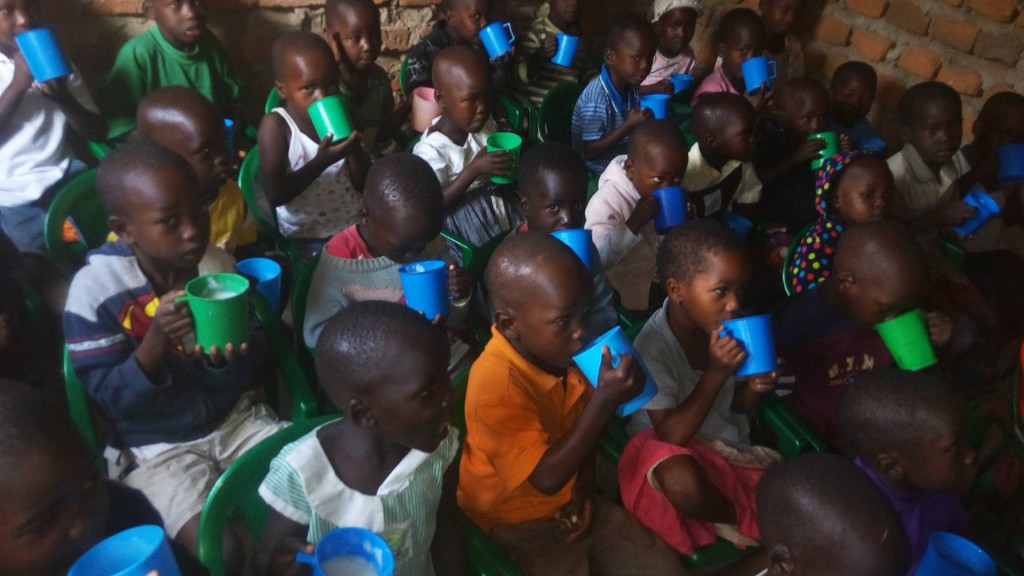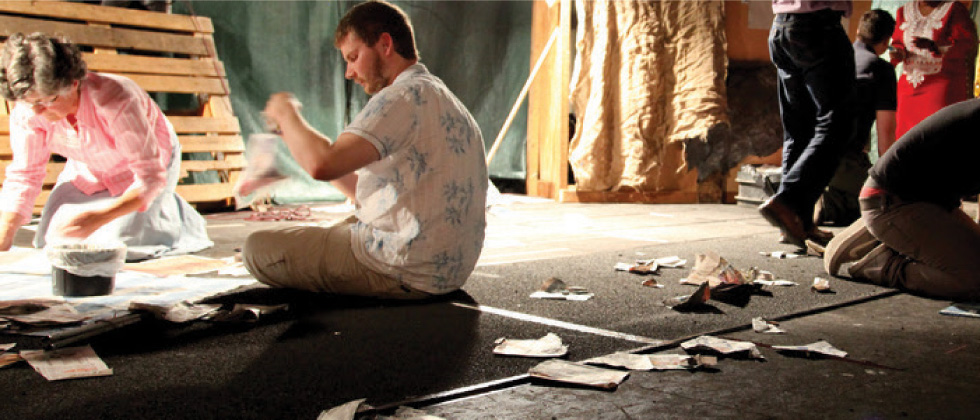Education and job creation
There are around 2.7 million orphans in Uganda, and for those without someone to advocate for them, meet their needs and see that they stay in school, it’s very difficult to escape poverty. Some children, like Gerald (right), have to work just to survive, even selling drugs or engaging in prostitution. UNICEF statistics indicate that 25% of children in Uganda are involved in child labour of some kind.
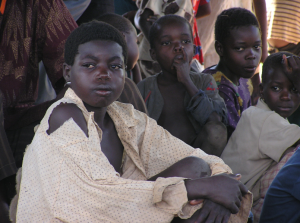 37.7% of Uganda’s population lives below the international poverty line of US$1.25 per day. Orphans and vulnerable children may find it impossible to break free from the poverty cycle without the kind of intervention that our partners are giving.
37.7% of Uganda’s population lives below the international poverty line of US$1.25 per day. Orphans and vulnerable children may find it impossible to break free from the poverty cycle without the kind of intervention that our partners are giving.
This shipment is helping give some of Uganda’s most vulnerable children and youth the chance at a life beyond basic survival. Crossroads’ partner NGO supports orphaned children through school, and gives job training to teenagers and youth who have dropped out of school, as well as helping them find employment.
Shipment includes:
- Stationery, text books and toys for programmes with nearly 1,000 school children
- School desks and chairs for under-resourced village schools
- Appliances, furniture and office equipment to help education and job training programmes
- Goods to meet the basic needs of elderly and orphaned in the community
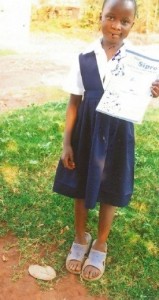 Katrina was left abandoned at age 3 when her parents died of HIV/Aids. Today, she’s thriving in Primary Three (right), thanks to the care of our partners, who help more than 200 orphans like her.
Katrina was left abandoned at age 3 when her parents died of HIV/Aids. Today, she’s thriving in Primary Three (right), thanks to the care of our partners, who help more than 200 orphans like her.
Goods in this shipment will release budget for them to give relief and educational support to more children.
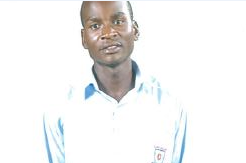 When Gerald was only 10, both his parents died, leaving him in the care of his 16-year-old sister. Gerald, not yet a teenager, started selling cocaine to make enough money to survive and to go to school. Gerald’s sister found her ‘escape’ by leaving home and marrying quickly, and young, which left Gerald completely alone, living in a 2-bedroomed grass hut that was in disrepair and falling down around him.
When Gerald was only 10, both his parents died, leaving him in the care of his 16-year-old sister. Gerald, not yet a teenager, started selling cocaine to make enough money to survive and to go to school. Gerald’s sister found her ‘escape’ by leaving home and marrying quickly, and young, which left Gerald completely alone, living in a 2-bedroomed grass hut that was in disrepair and falling down around him.
Thankfully, when he was 18 years old, staff from our partners met him. They helped Gerald find a better, more secure home, financial relief and encouraged him to finish his schooling. Today Gerald is in his final year of high school and planning to attend university. He wants to become a lawyer who can advocate for the rights of Ugandan orphans, and against early child marriage.
“He is one of the happiest guys around,” write our partners. “He now believes that life can change and have meaning.”
This shipment will include goods to support the programmes that helped Gerald turn his life around.

